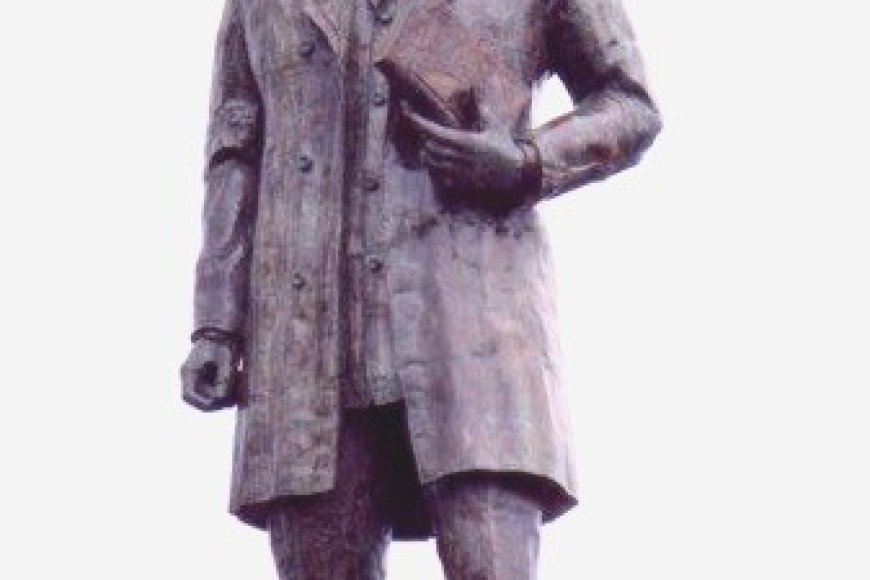Monday, July 21, 2025 | 2 a.m.
Editor's note: Este artículo está traducido al español.
Nevada hospitals are bracing for a financial crisis as President Donald Trump’s sweeping spending legislation threatens to cut millions in critical health care funding over the next decade.
University Medical Center in Las Vegas faces the largest blow, anticipating annual revenue losses of $45.4 million, according to a report by Third Way, which pulled data from the National Academy for State Health Policy among other sources.
Renown Regional Medical Center in Reno expects to lose $32.1 million yearly, while Mountain View Hospital projects an $18 million annual shortfall.
“We expect to make adjustments to our business operations,” said Mason Van Houweling, UMC’s CEO. “That includes staffing modifications, service line evaluations, expense management and other measures any organization would implement when facing financial pressures of this magnitude.”
The cuts stem from HR1 — dubbed the One Big Beautiful Bill — which Trump signed this month. The legislation slashes over a trillion dollars from support programs including Medicaid and the Supplemental Nutrition Assistance Program (SNAP) to fund increased spending on border security, defense and energy production.
Almost a million people are on Medicaid in Nevada, and nearly 450,000 are receiving SNAP benefits, which provide aid for food to over 40 million low-income Americans.
The county is “going to feel that ultimate pinch” because many of the people who lose their Medicaid or SNAP benefits will come to the county looking for assistance when money is already tight, Clark County Commissioner Tick Segerblom said. He added that the bill is “terrible,” “helping billionaires and going to hurt everyday citizens of Clark County.”
The bill introduces stringent new requirements that will dramatically reduce health care access.
Able-bodied adults must work 80 hours monthly until age 65 to maintain benefits, while more frequent eligibility checks threaten to push patients off coverage. The legislation also prohibits emergency Medicaid from covering undocumented immigrants or gender transition services, meaning UMC — a public hospital required to provide care to anyone who walks through its doors — will no longer be paid to provide care for uninsured individuals, which includes undocumented residents.
Starting in 2028, the bill will cap and gradually reduce the taxes states can impose on Medicaid providers, ultimately limiting them to just 3.5% — further straining an already constrained system.
Hospitals nationwide are projected to experience at least $24 billion in revenue loss annually over the next 10 years as a result of the bill’s Medicaid cuts, according to the report from Third Way, a national think tank and advocacy organization for moderate political ideology.
Medicaid makes up one-fifth of total spending on hospital care, and nearly 12 million Americans will be forced off their health care plans in the upcoming years, meaning hospitals will have to foot their medical bills if these uninsured patients end up in emergency rooms.
“Those residents of Clark County are going to feel that ultimate pinch because money is going to be short,” Segerblom said at the event. “We’re holding our breath right now to see exactly how much money we’re going to lose, but we know it’s going to be a substantial amount of money, (which) means we’re all going to have to tighten our belts and it’s going to be pretty horrific.”
The ripple effects extend far beyond hospital balance sheets.
As millions of Americans lose health coverage, hospitals nationwide will face a surge in uncompensated care costs. More patients will arrive unable to pay just as the revenue hospitals depend on disappears.
The result: overburdened emergency departments, extended wait times and diminished capacity to serve communities when care is most critical.
The situation becomes even more dire for Americans living in rural areas, with over 700 rural hospitals already in financial distress or at risk of closure.
Despite the daunting challenges ahead, Van Houweling expressed determination to preserve patient care, saying “we certainly don’t take any of those decisions lightly.”
He continued, “We’re not shying away from this challenging situation at all. We are ready to meet them head on, and we’re working together to really respond to our community and continue our mission to deliver Nevada’s highest level care, just as we’ve done for nearly a century.”
Layoffs possible
In Nevada, the revenue hit to hospitals is expected to be around $232.5 million, according to the Third Way report.
When asked if UMC would be initiating any layoffs, Van Houweling said the hospital has “some very comprehensive plans,” and they “do expect to make adjustments … both on the revenue growth side and services, but also other expenses.”
He did not specify what the plans were, and which other departments may be affected because they “haven’t yet finalized any staffing or service line adjustments, but everything is being considered.” Van Houweling also stressed that “the plans that we’ve got will be able to preserve UMC’s stability while maintaining that (level of) care.”
In a statement to the Sun, Mountain View Hospital said that while it also expected to be affected, it’s an issue affecting hospitals across the U.S. It’s why they’ve been advocating to protect programs like Medicaid and extend enhanced premium tax credits, which make it possible for more people to access health coverage through the Healthcare Exchange, they wrote.
“We have heard recent discussions in Washington, D.C., around the reconciliation package that are very concerning,” Mountain View said in a statement. “The Sunrise Health System, which includes MountainView, Southern Hills, Sunrise and Sunrise Children’s Hospital, is committed to the health and well-being of the communities we serve. We will continue to fight for policies that ensure sustainable access to care.”
[email protected] / 702-948-7854 / @gracedarocha
.png)








 English (US) ·
English (US) ·